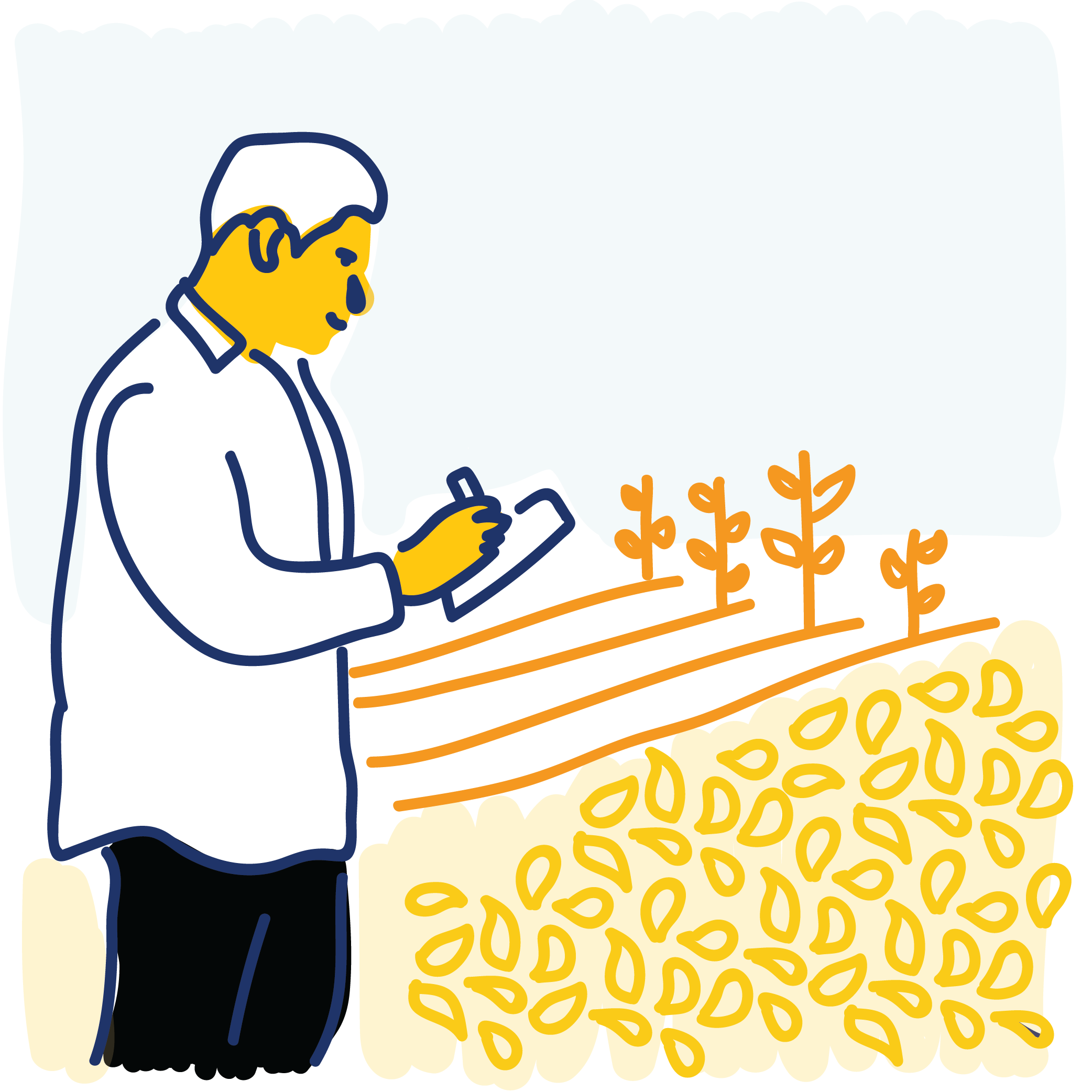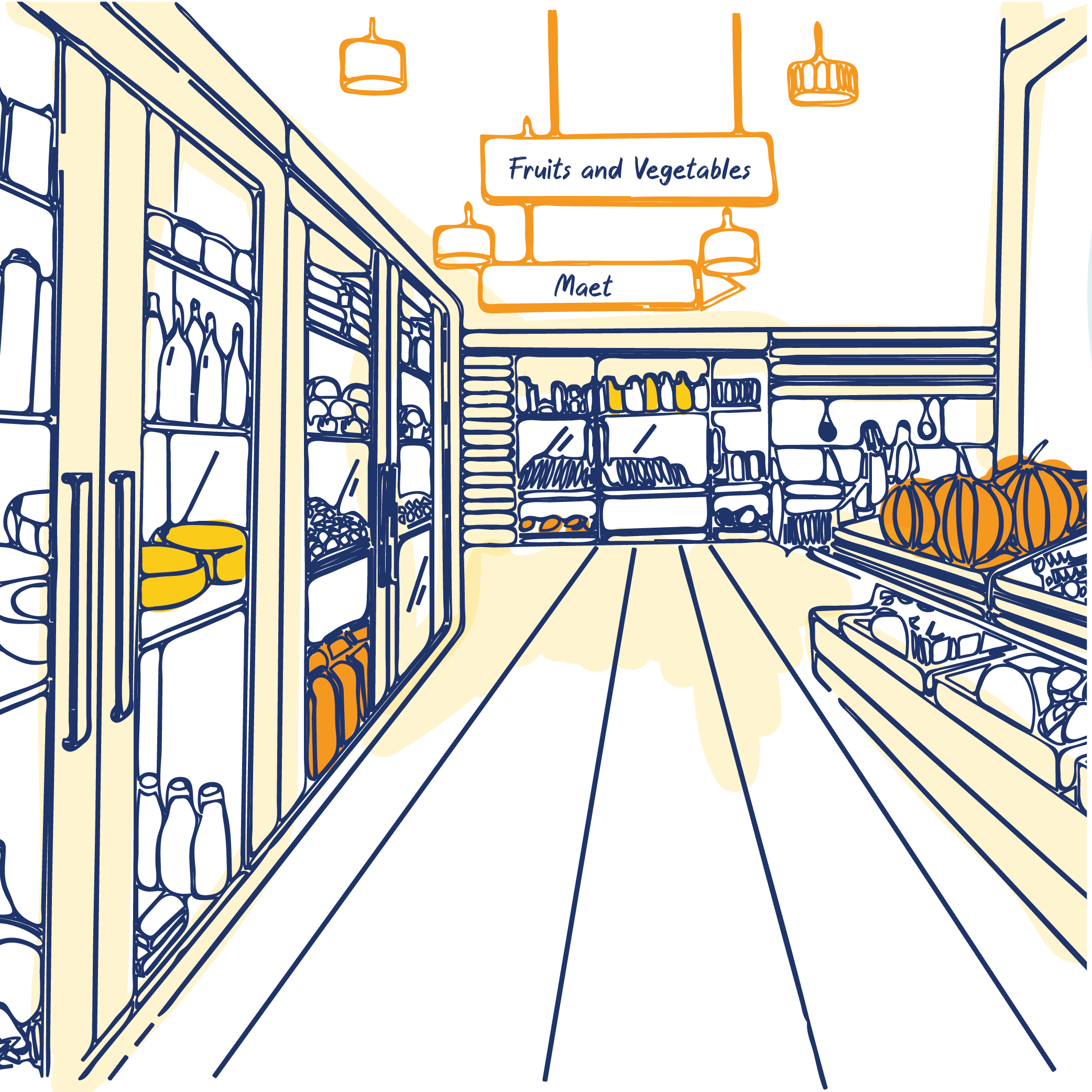The Vital Role of Supply Chain Management
Nov 14, 2024

When we enjoy a meal, we rarely think about the journey our food takes from farm to fork. However, behind every bite lies a complex supply chain network that ensures the safety and quality of our food. Supply chain management is critical in the food industry, encompassing the processes and activities involved in sourcing, producing, distributing, and delivering food products. In this blog post, we will explore the importance of supply chain management in ensuring food safety, highlighting its significance.
I. Understanding the Food Supply Chain
Farming and Production:
The food supply chain begins with agricultural practices, where crops are grown, livestock is raised, and food products are manufactured. This stage involves proper land use, sustainable farming practices, and adherence to quality and safety standards.

Processing and Manufacturing:
After harvesting, food products undergo processing and manufacturing, transforming raw materials into consumer-ready products. This stage involves various operations, including sorting, cleaning, cooking, packaging, and labeling, all of which must meet stringent food safety regulations.
Distribution and Transportation:
Once manufactured, products are transported from production facilities to distribution centers, warehouses, retailers, or food service establishments. Safe and efficient transportation is crucial to maintain product integrity and prevent contamination or spoilage.
Retail and Consumption:
Finally, the food products reach the retail stage, where consumers purchase and consume them. Retailers play a vital role in maintaining proper storage conditions and ensuring products are handled safely until they reach consumers' hands.

II. The Importance of Supply Chain Management in Food Safety
Traceability and Transparency:
An effective supply chain management system ensures traceability, allowing for product identification and tracking at every stage. In the event of a food safety issue, traceability enables swift and targeted recalls, minimizing the potential harm to consumers. It also promotes transparency by providing consumers with information about the origin and journey of their food.
Risk Assessment and Mitigation:
Supply chain management involves conducting risk assessments to identify potential hazards and vulnerabilities. Organizations can minimize the likelihood of food safety incidents and protect consumer health by implementing risk mitigation strategies, such as quality control measures, supplier verification programs, and regular audits.
Supplier Management:
Food manufacturers rely on suppliers for ingredients, packaging materials, and other essential components. Effective supply chain management includes rigorous supplier selection processes, ongoing monitoring of supplier performance, and clear communication of quality and safety expectations. This ensures that only trusted and reliable suppliers are part of the supply chain, reducing the risk of contamination or substandard ingredients.
Compliance with Regulations and Standards:
The food industry is subject to numerous regulations and standards to safeguard public health. Supply chain management involves understanding and complying with these requirements, such as Good Manufacturing Practices (GMPs), Hazard Analysis and Critical Control Points (HACCP), and industry-specific certifications like the Global Food Safety Initiative (GFSI) schemes. Compliance ensures that food businesses meet the necessary safety standards throughout the supply chain.
III. Best Practices for Effective Supply Chain Management
Collaboration and Communication:
Successful supply chain management relies on collaboration and communication among all stakeholders, including farmers, manufacturers, distributors, retailers, and regulatory authorities. Open lines of communication allow for the sharing of information, prompt issue resolution, and implementation of preventive measures.
Technology and Data Management:
Leveraging technology can significantly enhance supply chain management. Tools such as blockchain, real-time monitoring systems, and data analytics provide greater visibility and accuracy in tracking products, identifying potential risks, and improving overall supply chain efficiency. Effective data management ensures the availability of reliable information for decision-making and traceability purposes.
Training and Education:
Education and training programs are vital for enhancing supply chain management practices. Training employees on food safety protocols, quality control measures, and the importance of traceability fosters a culture of awareness and responsibility throughout the supply chain. Ongoing education ensures that professionals stay updated on emerging trends, regulations, and best practices.
Conclusion
Supply chain management is an essential aspect of ensuring food safety and quality. Organizations can enhance traceability, mitigate risks, manage suppliers, and comply with regulations and standards by implementing effective supply chain management practices. The food industry can build a resilient and transparent supply chain prioritizing consumer health and safety through collaboration, technological advancements, and continuous education.

If you require assistance or guidance with supply chain management, you can rely on the expertise of our team at GoHACCP with Experts. Our dedicated professionals are well-versed in the intricacies of supply chain management and can provide valuable insights and solutions tailored to your specific needs. Whether you are a food manufacturer, distributor, or retailer, we are here to support you in optimizing your supply chain operations and ensuring the highest levels of food safety.
Effective supply chain management is crucial for businesses and consumers relying on safe and quality food products. By prioritizing supply chain management, we contribute to a sustainable and trustworthy food system that benefits us all. Feel free to contact us at GoHACCP with Experts for any assistance or inquiries regarding supply chain management. Together, let's uphold the highest food safety standards throughout the supply chain.
Gerardo Fernández, Ph.D.in Biology.
Science Consultant at GoHACCP, dedicated to ensuring the safety and quality of food for consumers and manufacturers through scientific expertise and research.
Join our Food
Safety Community!
Stay ahead of the curve by exploring emerging
trends and technologies in food safety.

